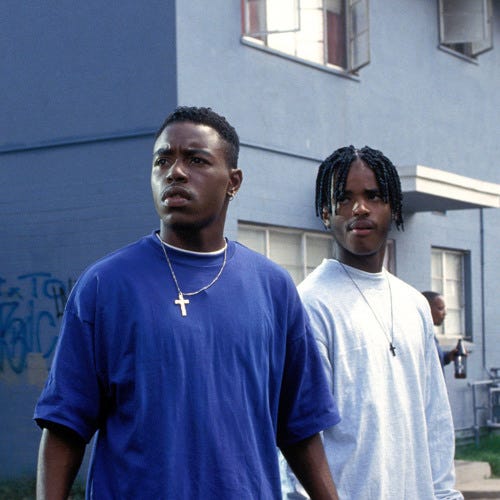It Started With O-Dog
In the mid-nineties, John Singleton made a film called Menace to Society. The film centers around the protagonist Caine and his friend as they navigate life in the hood. I often return to this film because it, like Juice or Boys in the Hood, is somewhat of a classic within the genre of black film. Every time I see the film, there is but one question that lingers as I watch the final scene: What is Good News here? And this seemed to shape my thinking for a very long time, and it's still shaping my thinking at this point. The events of February 2012, the killing of Trayvon Martin, changed my viewpoint about everything that I've known about faith, about Jesus, about God, about truth. It all unraveled, mostly because nobody in pulpits was saying anything about this at all. White evangelical organizations fostered my initiation into Christianity. One of the first acts of business was destroying all my secular music, especially Hip Hop. Indoctrinated into believing that Hip Hop would lead m…
Keep reading with a 7-day free trial
Subscribe to Tamice Namae Speaks to keep reading this post and get 7 days of free access to the full post archives.




